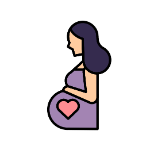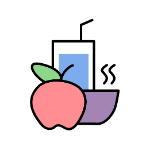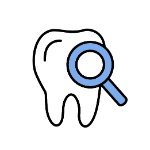
List Of 20 Types Of Foods That Will Help To Develop Baby's Brain In The Womb
Maintaining a nutritious diet is important regardless of whether or not a person is pregnant. However, there is no doubt that the essential nutrients included in whole meals are critical for the brain development of a newborn.
(Image credits to Canva)
According to the Academy of Nutrition and Dietetics, several foods have been shown to be high in nutrients that are essential for a baby's growth. When these foods are included in the diet during pregnancy, they have the nutritional capacity to boost the mental health of the newborns as well as strengthen their memory. Here is a list of 20 types of food that will help to develop a baby’s brain in the womb.
#1 Fatty Fish
The growth of your baby's brain requires omega-3 fatty acids. Salmon must be consumed by pregnant women in order to give birth to intellectual babies. At least two or more servings of fish should be consumed per week. Oysters, which are high in iodine, are another seafood alternative. Pregnant mothers with low iodine levels should be aware that if proper iodine levels are not maintained, their baby's IQ may suffer.
(Image credits to Canva)
#2 Green Leafy Veggies
Eating green leafy vegetables and certain legumes, such as spinach and lentils, as well as folic acid-rich leafy greens, is essential since it protects your baby's brain from tissue damage. Folic acid in vegetables is also recognized for lowering the chance of neural tube abnormalities in newborns, as well as preventing cleft lip and other heart disorders. You can also lower your risk of preeclampsia during pregnancy by eating folic acid-rich foods or taking folic acid supplements.
(Image credits to Canva)
#3 Blueberries
Blueberries are high in antioxidants and will help your child's cognitive development. Strawberries, raspberries, blackberries, tomatoes, beans, and artichokes are all good substitutes for blueberries.
(Image credits to Canva)
#4 Eggs
The major component of cell mass and the cell membrane is choline, which is high in egg yolks. Acetylcholine, which transports messages through nerves, is also produced by eggs. As a result, eggs have been shown to help with brain growth and memory. Despite the fact that raw eggs contain more choline, which is degraded after cooking, it is recommended that eggs should be boiled before eating to avoid food poisoning.
(Image credits to Canva)
#5 Cheese
Cheese is another dairy product that you should incorporate into your diet nowadays. Regular processed cheese, Cheddar cheese, Parmesan cheese, and even Paneer are wonderful treats that can be consumed throughout pregnancy to help the baby develop intellectual capabilities.
(Image credits to Canva)
#6 Greek Yogurt
Protein-rich diets are required for the formation of healthy nerve cells in the mother's womb, which is vital for the baby's cognitive development. Probiotic foods, such as Greek yogurt, are also an excellent source of calcium for your baby's bone development. Greek yogurt is also high in iodine, which can help minimize or prevent your baby from being born with low birth weight.
(Image credits to Canva)
#7 Almonds
Almonds are high in omega-3 fatty acids, magnesium, Vitamin E, and protein. Almonds are high in omega-3 fatty acids, which are beneficial to the brain. It is suggested that you eat a fistful of almonds every day to ensure that your children are intelligent from the start. Peanuts and walnuts are both high in healthful omega-3 fatty acids, which can help the baby develop intelligence.
(Image credits to Canva)
#8 Pumpkin Seeds
Zinc is plentiful in pumpkin seeds. Zinc is a mineral that promotes appropriate brain structure and aids in information processing cognitively. They're nutrient-dense, and they're also high in antioxidants!
#9 Beans
The body needs iron to carry oxygen to nerve cells in the baby's brain. Beans are high in iron, which is why it is recommended that pregnant women increase their intake of this dietary item. Spinach, figs, poultry, and raisins are other iron-rich foods to include in your diet. To keep your sugar levels in balance, eat raisins in moderation.
#10 Milk
Iron deficiency in pregnant women causes mental growth retardation, which has a significant impact on the baby's overall cognitive development. Milk helps newborns establish healthy cognitive capabilities and maintains their brain development before they are born.
#11 Seafood
Mackerel, Cod Liver Oil, Herring, Sardines, and Anchovies are all fat-rich fish and seafood that should be consumed during pregnancy to ensure a healthy baby. During pregnancy, your body uses more Omega 3 Fatty Acids to create a fetus. This necessitates supplementing from food sources. DHA and EPA, which are found in abundance in seafood, are essential for optimal neurodevelopment. To increase the baby’s brain development throughout pregnancy you should eat seafood at least 3-4 times each week.
#12 Oatmeal
A big dish of oatmeal in the morning is a great way to start the day. Whole grains are fantastic for keeping your energy levels up, especially if you're feeling tired from morning sickness. Furthermore, all that fiber will aid in another pregnancy annoyance: constipation. But the advantages aren't limited to mom. Protein and vitamin B6, both of which are essential for a baby's brain development, are included in this handy breakfast dish.
#13 Bananas
Bananas have long been regarded as a superfood for expectant mothers. Women can keep them in their purses and use them on their way to work. Bananas are high in potassium, lipids, iron, calcium, phosphorus, and iron, all of which help to combat the exhaustion that comes with pregnancy. They're also known for preventing preterm labor, high blood pressure, dyspepsia, and improving immunity.
#14 Sweet Potatoes
Sweet potatoes have beta-carotene, an antioxidant that your body converts to vitamin A. Other foods on our list have many of the same elements, but we're highlighting sweet potatoes because of their beta-carotene. Vitamin A, as you may recall, is essential for the development of a baby's eyes, bones, and skin, and brain. These orange potatoes are also an excellent method to meet your iron requirements, as they contain copper, a mineral that aids iron absorption in the body. So, instead of your traditional sides, try sweet potatoes mashed, roasted, or French-fried (oh, yum!).
#15 Dark Chocolate
Pregnant women can consume dark chocolate (in moderation) since it is claimed to help increase blood flow in both the mother and the baby. It's also high in antioxidants, which protect the growing baby's tissues and membranes from harm.
(Image credits to Canva)
#16 Dairy Products
Milk, cheese, and yogurt are rich in calcium and lean protein, including whey and casein. Calcium, as per the Academy of Nutrition and Dietetics, is vital not only for the formation of teeth and bones but also for the electrical transmission that occurs within the brain. It is essential for a baby's overall growth and should be included in the meal.
#17 Salt
Iodine is necessary by the thyroid for the creation of triiodothyronine and thyroxine hormones in both babies and women, and salt is high in it. Iodine is essential for the growth of the cerebral cortex, hippocampus, cerebellum, visual, and auditory cortex in babies. Because the baby's thyroid does not form until after 20 weeks, iodine from the mother's meals aids in brain development.
#18 Dried Fruits
Apricots and prunes, for example, should be taken in moderation since they might create stomach difficulties and contain less water than fresh fruits. For pregnant women, prunes help with nausea and exhaustion. Both are high in vitamin B complex, which is required for DNA or RNA repair, as well as the synthesis of neurochemicals and signaling molecules. They help protect the brain's cellular membrane from harm.
#19 Avocadoes
They're high in good fats, antioxidants, iron, Vitamin C, and B-6. They aid in the absorption of nutrients from other fruits and vegetables and assist to combat morning sickness, which causes lethargy for the remainder of the day.
(Image credits to Canva)
Half a cup of avocado contains 22 milligrams of choline, which is necessary for the formation of red blood cells, the newborn brain, and the prevention of anemia.
#20 Whole Grains
White bread and rice have less folic acid and iron compared to whole grain bread and grains. For an overall diet plan throughout pregnancy, it is a good idea to have whole wheat spaghetti for dinner, brown rice for lunch, and a sandwich on whole-grain bread for breakfast.
(Image credits to Canva)
Pregnancy is one of the most wonderful times in a woman's life, but it also comes with its own set of psychological and physical challenges. Maintaining a healthy and balanced diet is extremely important during pregnancy since it benefits both the mother and the baby! It’s very important to understand that whatever you eat during pregnancy has a direct impact on your unborn child’s health and brain development. So having the right food in the right amount is a must. Follow this above-mentioned list of 20 types of foods that will help to develop a baby's brain in the womb.
Don’t forget to check HappyPreggie’s website to check more of our blogs about pregnancy, childcare, parenting, and health & wellness. For now, you can check- Top pregnancy fears that every new mom face if you are going to be a mom or you can also read 7 effortless ways to lose weight after pregnancy that many don’t know about.
















